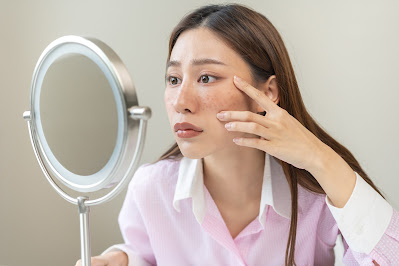UNDERSTANDING ECZEMA
Once you have been diagnosed with the condition, you have a decision to make whether you want to treat it the conventional way or find some holistic solution. With organics, being green and natural products are on the rise, most patients will choose the holistic approach, mainly because it is the safest way to treat your body with any condition. The conventional protocol is to usually get a prescription for the cortisone cream and this will just bring down the appearance of redness but will thin the skin without treating the source of the imbalance. The appearance of it has been reduced but the cause of it is still there so it returns.
Nutrition plays a huge role in the healing of any skin condition, especially with eczema. A wise man named Hippocrates, once said, “Let your food be your medicine and your medicine be your food”. He was one that firmly believed that food is your healer. If something is out of balance or your digestive system is not functioning well then this could be one of the causes of eczema. If the gut is not healthy, neither is the rest of the body including the skin. In the stomach, nutrients are made usable as fuel for running the body and if there are not enough nutrients to run the body then this causes the dysfunction of the intestinal tract which then shows up on the skin. The result of eating processed foods (white sugar, white flour, white rice, etc), using antibiotics and different medical drugs can cause an infection known as candidiasis which can weaken the immune system and be another cause for eczema.
The kind of nutrients needed in order for skin to heal would be vitamins, minerals, fatty acids (which are amazing for lubricating the intestines, holding hydration and aiding in digestion), amino acids, carbohydrates, water and other factors such as light, love and rest. Having a diet that is high in these and also taking the necessary supplements is optimal in healing this condition and having soft beautiful, hydrated skin.
DRY ECZEMA
It is dry, flaky and chapped and the easiest to treat. The application of a rich cream or pure oil feels wonderful, like a refreshing drink for the skin. It is most important to ensure only pure vegetable oils are used as they fully absorb and nourish the skin.
INFLAMED ECZEMA
This type of eczema often experiences a burning sensation. While it can also be dry and flaky, it is important to avoid straight oils and rich creams because oil will accentuate the heat. For this type of eczema I recommend the use of cooling gels, aloe vera and light lotions. Repeated application may be needed throughout the day to keep the skin moist and support its barrier function. Spraying hydrosols of rose and chamomile can also be effective.
WET ECZEMA
This type of eczema has a look of wetness. Almost like perspiration on the skin. This type is at risk of becoming infected by fungus. Often it acquires what looks like water blisters, and it is very itchy. Keep this eczema clean and use anti-bacterial, anti-fungal herbs on the skin such as tea tree (diluted), peppermint and sage which all have purifying properties. Avoid rich, moist products.
Now that you have determined what type of eczema you may have and the kind of gels, lotions and oils to use, be sure to adjust your diet and stay away from processed, synthetic foods and let food be your medicine.






Comments